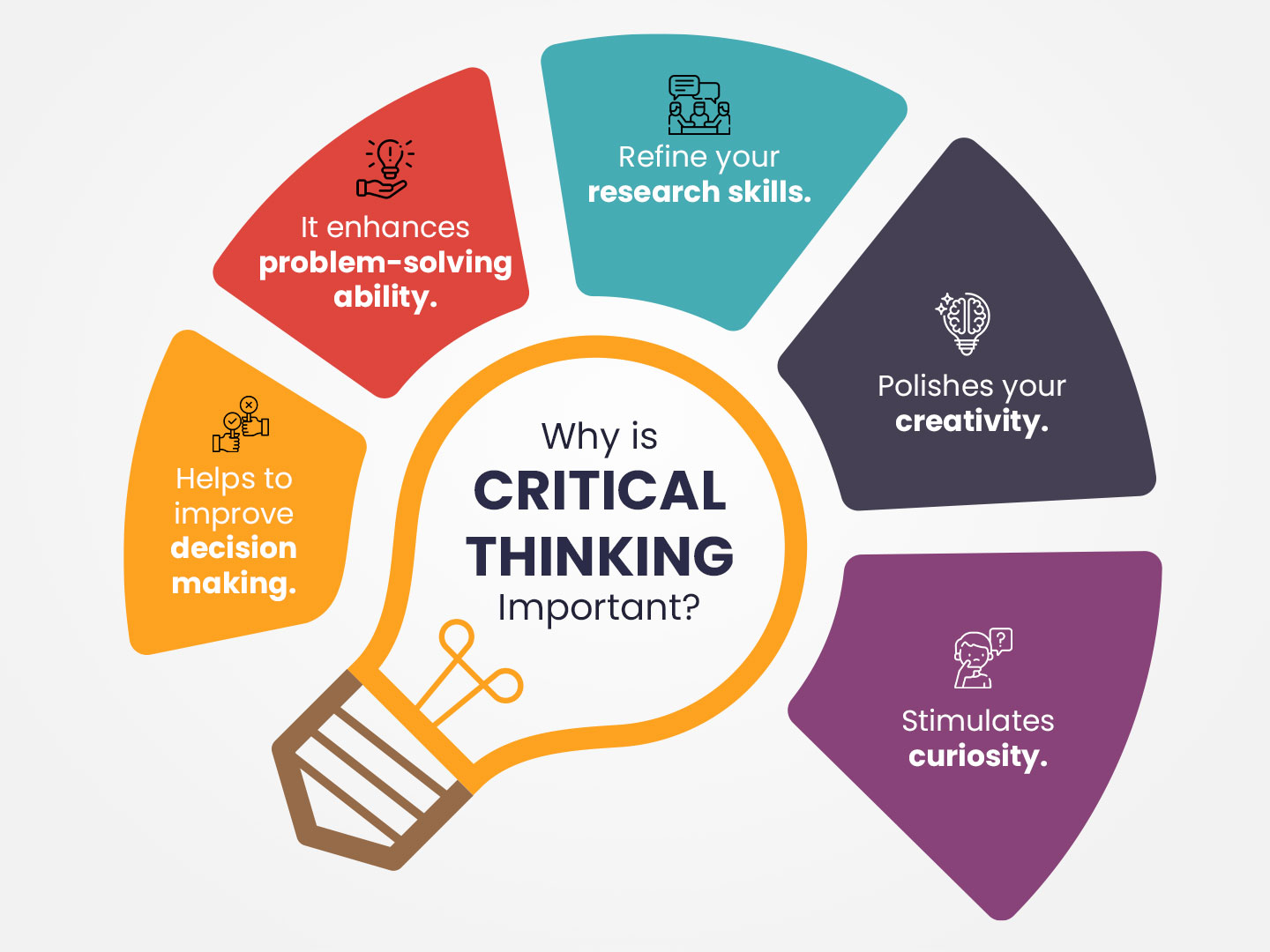In today’s rapidly changing world, teaching critical thinking skills has become more essential than ever before. Therefore, educators have a profound responsibility to equip our students with the ability to analyze information, think independently, and make well-informed decisions. But whether teachers how to teach critical thinking. In this article, VTJ will discuss various effective methods to teach these skills, enabling students to become adept at problem-solving and decision-making, ultimately preparing them for success in both academic and real-life situations.
>>>Read more: What is Experiential Learning? How Does It Work?
What is critical thinking?

How to Teach Critical Thinking Skills to Students
Critical thinking is a cognitive process and a fundamental skill that involves analyzing, evaluating, and synthesizing information to form well-reasoned judgments and make informed decisions. Critical thinking goes beyond simply accepting or memorizing information; it involves questioning assumptions, considering alternative perspectives, and making informed judgments based on evidence and reasoning. It is a cognitive process that enables individuals to think independently, solve problems, make sound decisions, and communicate effectively. Critical thinking skills are essential for academic success as well as professional growth.
>>>Read more: Guide on How to Teach Vocabulary Effectively for Teachers
Why should students have critical thinking skills?

Why should students have critical thinking skills?
Students should have critical thinking skills because they are essential for their overall development and success in various aspects of life. Critical thinking enables students to analyze information objectively, evaluate evidence, and make informed decisions. It fosters independent thinking, creativity, and problem-solving abilities, allowing students to approach challenges with a logical and systematic mindset. By developing critical thinking skills, students become better equipped to navigate the complexities of the modern world, including understanding and evaluating the vast amount of information available to them. Additionally, critical thinking promotes effective communication, as students learn to express their thoughts and ideas clearly and persuasively. In an ever-evolving world, critical thinkers are better accommodated to new situations, embrace diverse perspectives, and thrive in a rapidly changing landscape.
>>>Read more: 120+ High and Middle School Debate Topics for Students
>>>Read more: Different types of institutions to teach English in Vietnam
How to Teach Critical Thinking Skills to Students
How to Teach Critical Thinking Skills to Students
Make time for metacognitive reflection
Making time for metacognitive reflection is a crucial aspect of effective learning and personal growth. Metacognition involves thinking about our thinking—reflecting on our thought processes, learning strategies, and problem-solving approaches. Allocating dedicated moments in the learning process for metacognitive reflection allows students to become more aware of how they learn, understand their strengths and weaknesses, and identify areas for improvement. This introspective practice enhances students’ critical thinking skills, self-regulation, and overall cognitive development. As educators, we can foster metacognitive reflection by encouraging students to ask themselves questions like “What did I learn from this task?” or “How could I approach this differently next time?” By nurturing this reflective practice, students can become more independent learners, capable of adapting and thriving in various academic and real-life situations.
>>>Read more: How To Write a Curriculum in 8 Steps: A Complete Guide
>>>Read more: What is blended learning? Types, Examples & Benefits?
Teach reasoning skills
Teaching reasoning skills is a vital aspect of education, as it equips students with the ability to think critically and make informed decisions. To effectively teach reasoning skills, educators must provide explicit instruction on different types of reasoning, such as inductive and deductive reasoning, and encourage students to practice with real-world examples and scenarios. Engaging students in debates, discussions, and problem-solving activities fosters their capacity to construct logical arguments and consider multiple perspectives. By identifying biases and logical fallacies, students learn to evaluate the validity of arguments and strengthen their own reasoning abilities. Providing opportunities for metacognitive reflection allows students to become more aware of their thinking process and improves their self-regulation.
>>>Read more: 4 Types of Learning Styles: How to Use VARK Model in Teaching
Ask open-ended questions
Asking open-ended questions is a powerful teaching strategy that stimulates critical thinking in the classroom and encourages deeper engagement in the learning process. Open-ended questions do not have a single right answer, allowing students to explore different perspectives and develop their reasoning skills. By posing thought-provoking questions, educators create opportunities for students to analyze information, draw connections, and articulate their thoughts creatively. Open-ended questions promote active participation, as students feel empowered to express their ideas and insights. This approach also fosters a dynamic and collaborative learning environment, where students can learn from one another’s perspectives.
Featured Job
>>>Read more: How To Write a Lesson Plan in 6 Steps: The Complete Guide
>>>Read more: 14 Types of teaching methods for an effective lesson
Teach information literacy
Teaching information literacy is a crucial aspect of education, equipping students with the necessary skills to effectively find, evaluate, and use information in a critical and responsible manner. How to teach information literacy and how to teach critical thinking? Educators must focus on guiding students through the process of identifying reliable sources, analyzing information for bias and credibility, and discerning between factual data and opinions. By encouraging students to ask questions about the information they encounter, consider multiple perspectives, and draw evidence-based conclusions, teachers foster critical thinking skills. Additionally, teaching students how to cite sources properly and respect intellectual property rights promotes ethical information use. In a rapidly evolving digital age, information literacy is an invaluable skill that empowers students to be discerning consumers and creators of knowledge, ensuring their success in academia and beyond.
>>>Read more: Teacher Burnout: Causes, Signs, and How to Avoid It
>>>Read more: 15+ Ways to build confidence in your ESL students
Provide diverse perspectives
Providing diverse perspectives is crucial in fostering a well-rounded and inclusive society. By embracing a wide range of viewpoints, we can gain a deeper understanding of complex issues and challenge our own biases. Diverse perspectives encourage critical thinking and promote innovation by bringing together different ideas and experiences. They also help us recognize the unique struggles and triumphs of various communities, fostering empathy and compassion.
>>>Read more: 20+ Effective Classroom Management Strategies and Techniques
>>>Read more: What is TPR (Total Physical Response)? How can I use it?
Practice makes perfect
The age-old adage “practice makes perfect” holds true, especially in the realm of learning and skill development. It emphasizes the significance of consistent effort, dedication, and perseverance in mastering any subject or activity. Whether it’s learning a musical instrument, excelling in academics, or honing athletic abilities, regular practice allows individuals to refine their techniques, build muscle memory, and improve performance over time. By embracing a growth mindset and viewing mistakes as opportunities for growth, learners can embrace the iterative nature of practice and continuously strive for improvement.
>>>Read more: What Is a Montessori School? Pros and Cons of Montessori School
>>>Read more: Practical Tips to Deal with Negative Teacher
Nowaday, teaching critical thinking is essential in equipping individuals with the skills necessary to navigate an increasingly complex and interconnected world. By emphasizing how to teach critical thinking, educators to play a crucial role in preparing guide students to analyze information and make informed decisions
FAQ
What are the 3 C’s of critical thinking?
The 3 C’s of critical thinking are: Clarity, Coherence, and Consistency.
What are the 7 core critical thinking skills?
The 7 core critical thinking skills are: Analysis, Interpretation, Inference, Explanation, Evaluation, Self-Regulation, and Open-mindedness.
Are you facing difficulties in finding and securing teaching positions in Vietnam? Are visa procedures causing you trouble? Feeling overwhelmed and directionless upon your arrival in Vietnam for teaching assignments? Don’t worry, VTJ’s English Teaching Placement in Vietnam (EPIV) Program 2024 provides comprehensive support to solve ALL the matters.
👉👉👉 Click HERE to request free consultation





